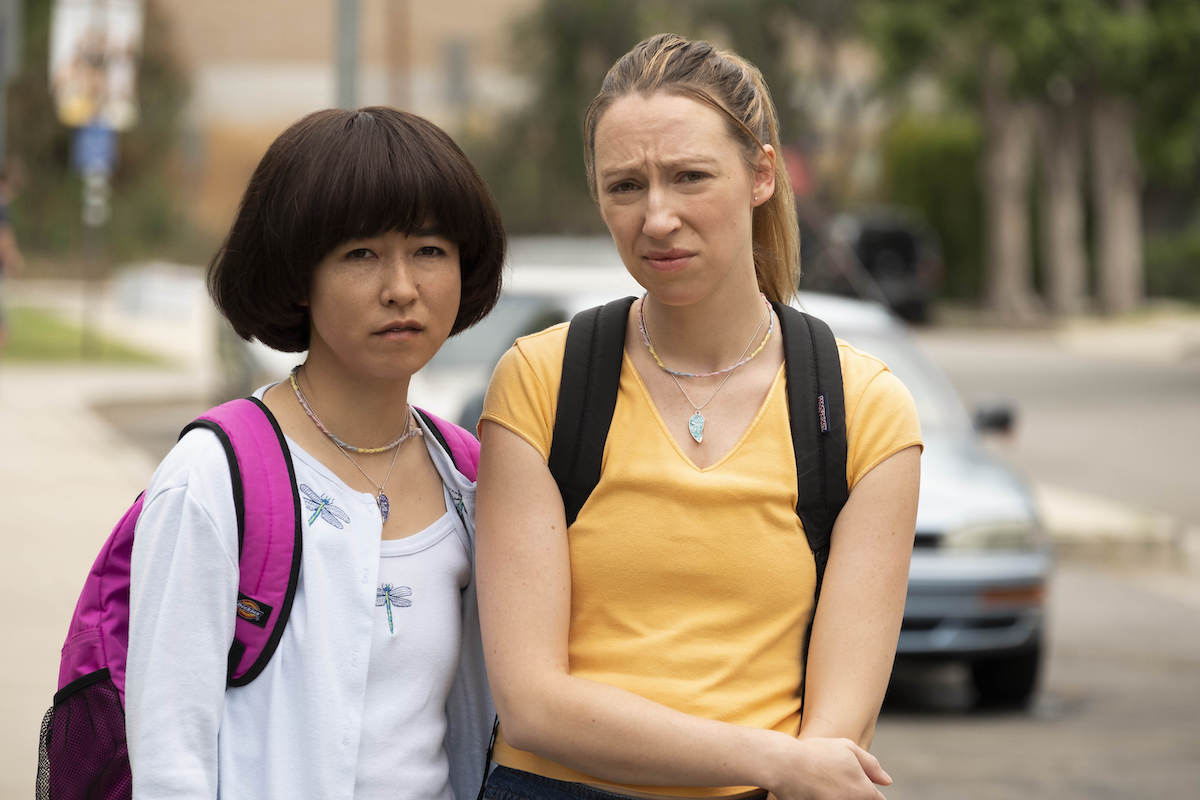Hulu’s PEN15 Is a Powerful Love Letter to Young Female Friendship
It's so much more than its mildly uncomfortable gimmick.

In Hulu’s PEN15, Maya Erskine and Anna Konkle play versions of themselves as 13-year-olds in the year 2000. The show opens on their first day of 7th grade, for which they are incredibly–and, as the older audience knows, tragically–excited. The gimmick of the show is that, while Erskine and Konkle are both in their early 30s, their fellow actors are the age of their characters. Meaning we’re watching two 30-something women engage in all-too-realistic middle school nostalgia with actual pre-teens and early teenagers.
The first few episodes are funny and they’re a solid dose of nostalgia in their depiction of first crushes and first mean girl encounters. But even with the end-credit disclaimers that adult body doubles were used in some scenes, it might be hard to overcome the awkwardness of watching a 31-year-old mack on a pre-teen, especially since that makes up such a large percentage of what middle schoolers do and think about. I admit that even though I liked the show, I almost gave up after an episode, and then again after two. But boy am I glad I didn’t.
By the end of the first season’s ten episodes, I had also long stopped thinking of the show’s adult casting as a gimmick. Rather, it felt like a reminder of how our childhood traumas and even just everyday experiences stick with us long into adulthood.
By putting adult women in these childhood situations, it should highlight the frivolity of that time, and how silly some of the things were that we cared about with our entire hearts–the nonexistent slights that made us fight with our best friends or the heartache we felt when a person we barely even knew didn’t like us back. Instead, the show treats these young girls’ feelings with the respect of adults.
Much of this is due to these women’s 100% commitment to their characters, but the show also grows immensely during its brief first season. Especially when binge-watching, you might not notice that the episodes move from the expected plotlines of crushes and frenemies to those of more deep-seated self-image issues. It’s at the midpoint of season one that the show starts churning out powerfully poignant moments and messages.
Some of them come in the form of best friends finding a new sense of self through a (stolen and, even more grossly, shared) thong. Some are an entire episode devoted to discovering how insidiously casual a form racism can take. In the mind of a 13-year-old, both of these things–along with all the crushes and the loneliness and parental divorce and the fights between friends over nothing at all–can carry equal weight. That the show can tackle them back-to-back without one lessening the other is a real testament to the writing.
PEN15, like its name, is goofy and weird as hell. But that goofiness is almost a smokescreen. Or it would be, if it weren’t committed to so heavily. Yet it does belie the show’s incredible depth. A darker show about ’90s/early 2000s youth would, say, focus on the dangers of young girls developing attachments to strange men in the early days of AIM. A lighter show would lay heavily into the simple nostalgia of the AOL dial-up screeching. This is the show that somehow does both.
(image: Alex Lombardi/Hulu)
Want more stories like this? Become a subscriber and support the site!
—The Mary Sue has a strict comment policy that forbids, but is not limited to, personal insults toward anyone, hate speech, and trolling.—
Have a tip we should know? tips@themarysue.com